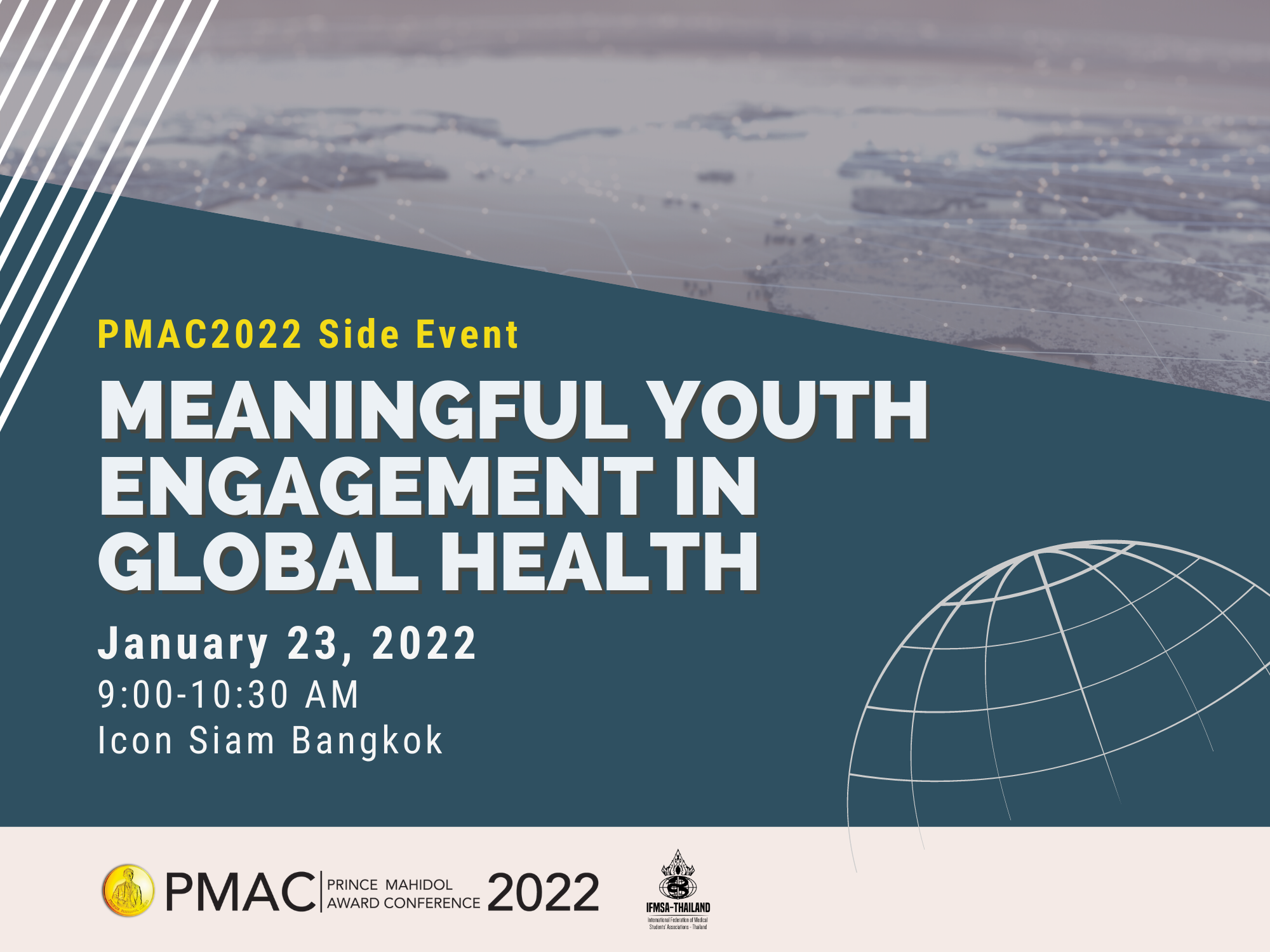Side Meetings
SMA001
Meaningful Youth Engagement in Global Health
23
Jan
- International Federation of Medical Students’ Associations - Thailand (IFMSA-Thailand)

In a world in which half of the population is under 25, youth forms an integral part of the society. With that in regard, youth are among one of the most vulnerable groups affected by the health and social inequity which was exacerbated during the pandemic. The COVID-19 pandemic which disrupted access to education, health and social services gave rise to the additional burden on mental health and well-being of youth and raised concern about their futures after the pandemic. In the longer term, it will affect their employment opportunities, social securities, and increase their exposure to vulnerability in the future.
On the other hand, youth has made a pivotal role in the health crisis by leading several health responses amidst the pandemic. Examples of the initiatives done by the youth-led organizations include combatting the infodemics and delivering updated health information, providing support to people in communities isolation, innovating digital tools to assist health workers in active surveillance , and peer-to-peer education and mental health support. This has demonstrated youth’s capability to tackle global health issues, if provided adequate support from the government and multisectoral collaboration.
To build the World We Want, it is critical that young people are perceived as a key stakeholder of governance. Young people are still underrepresented at the high-level meeting and do not have a well-established mechanism to voice their concerns. Actions taken will center around how the government can incorporate the voice and power of young people to build an integrated response which will lead to a more inclusive and sustainable society.
The session aims to address the following agenda:
- Explore the impact of health inequities on children and youth;
- Explore the roles of youth, youth-led organizations, and youth constituencies in tackling global health agendas, including the pandemic;
- Discuss the partnership between youth and other sectors;
- Identify challenges and barriers for youth’s engagement with society
- Develop proposals and way forward to integrate youth as key sector in the health system

